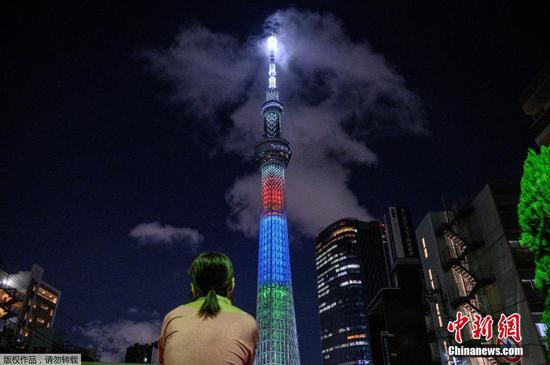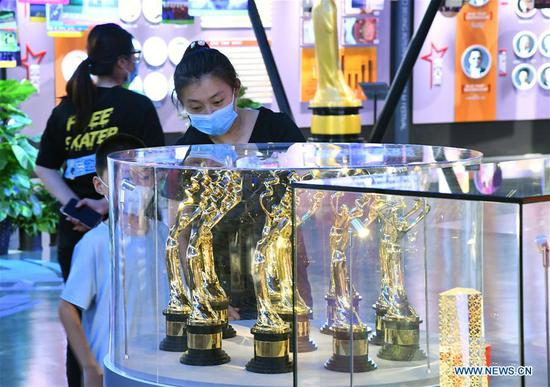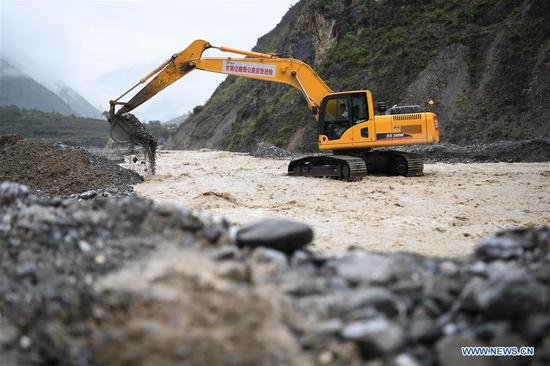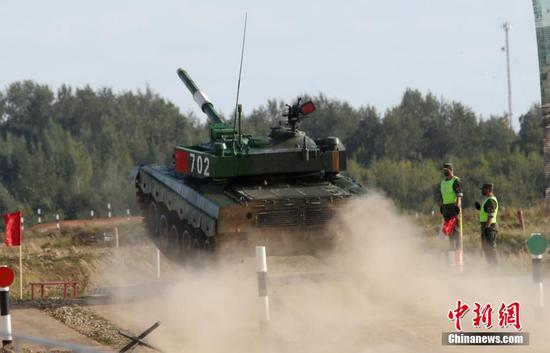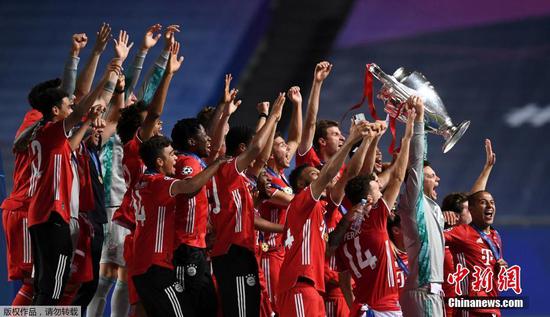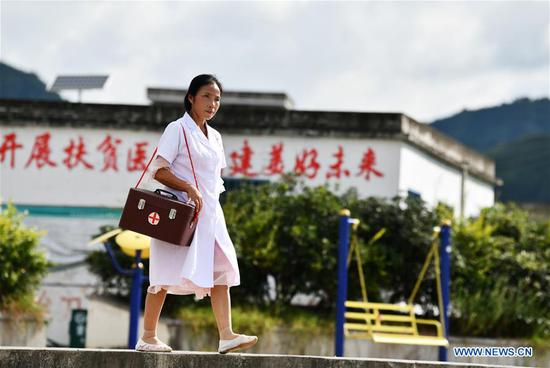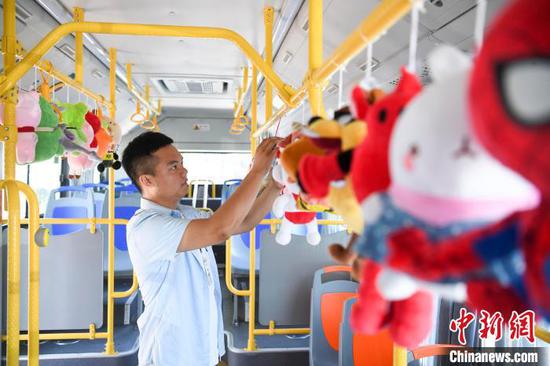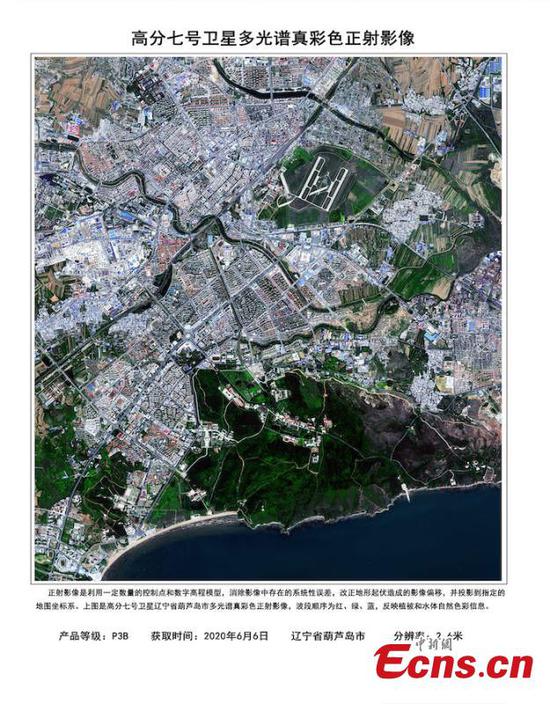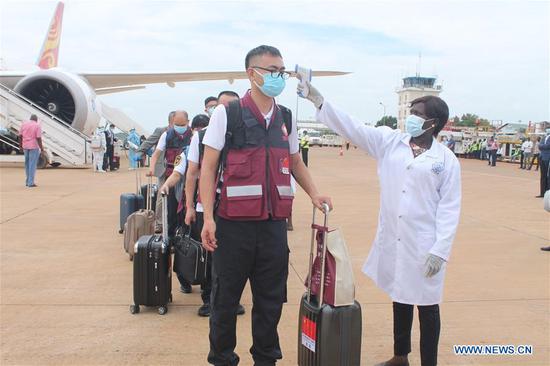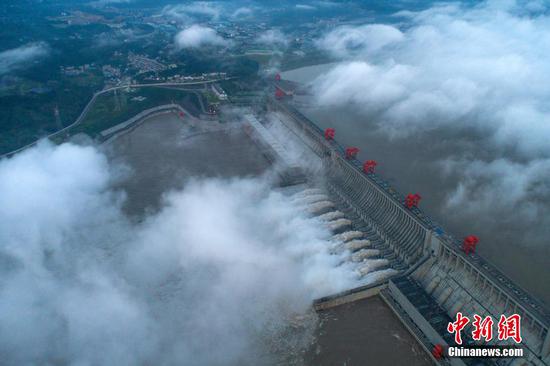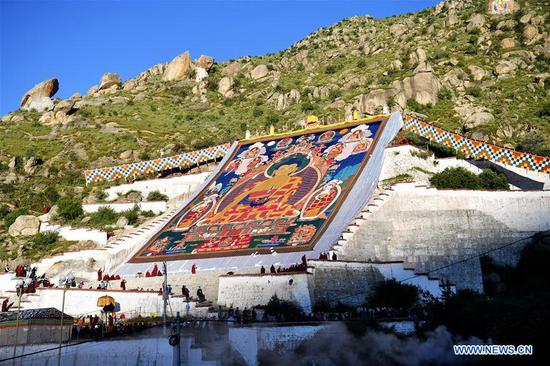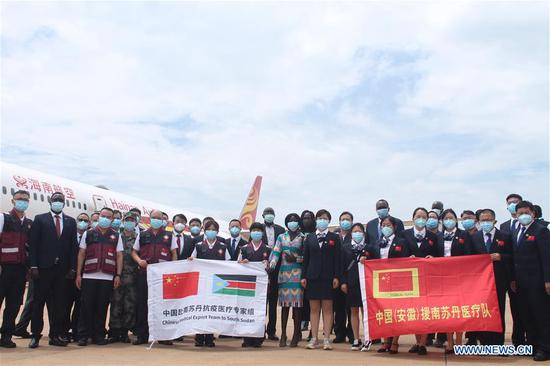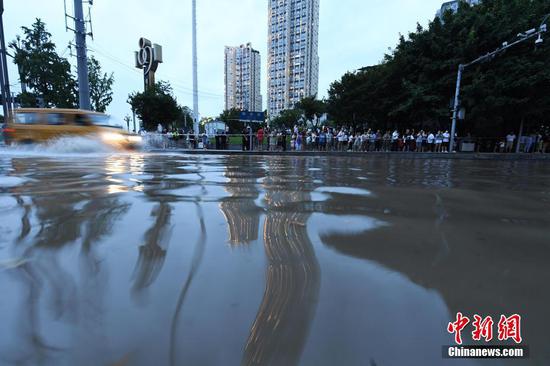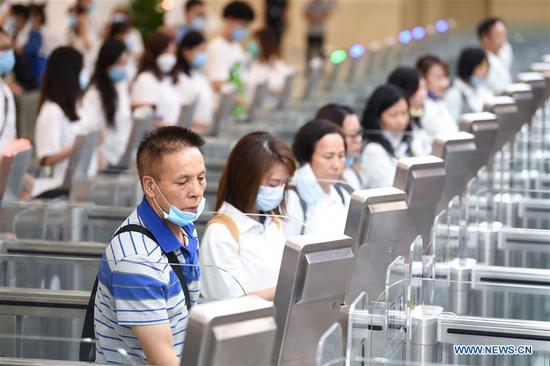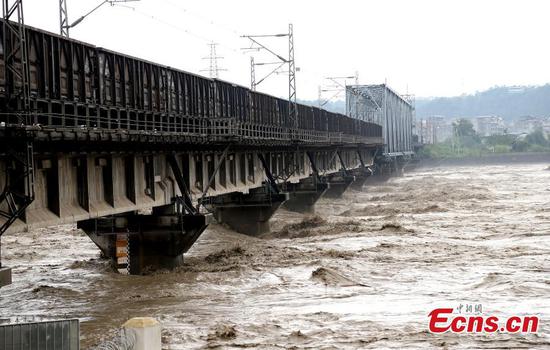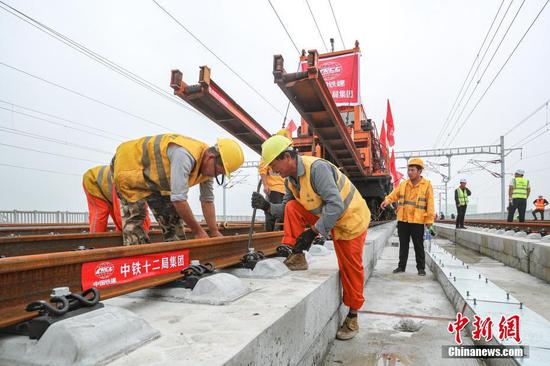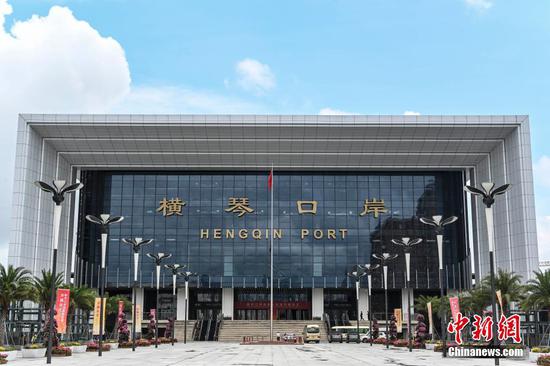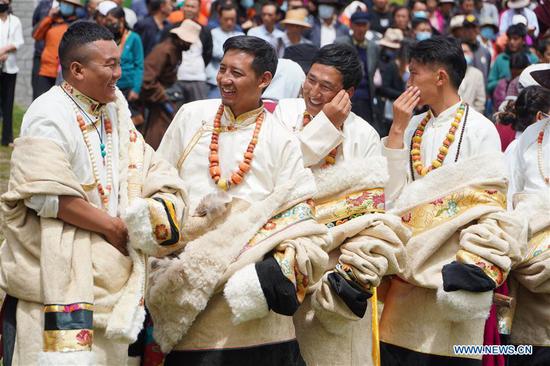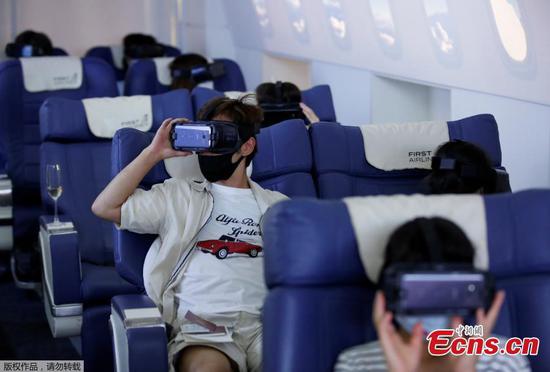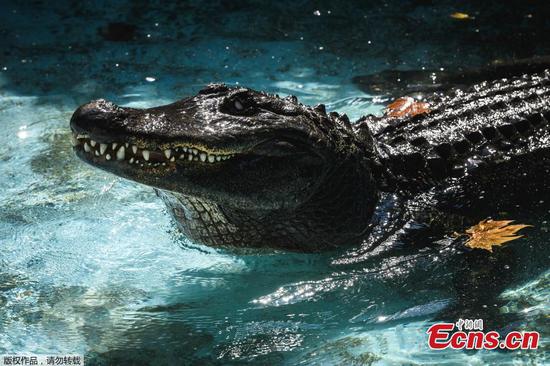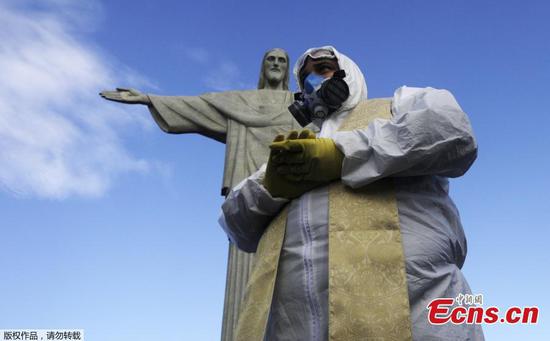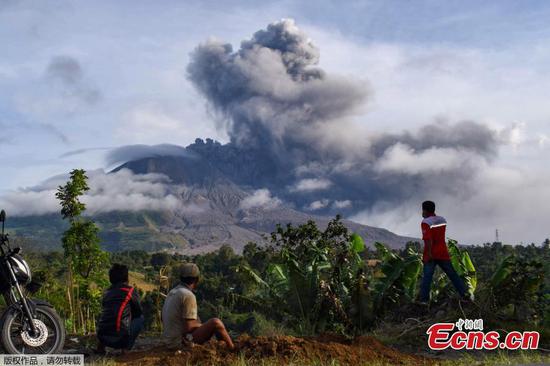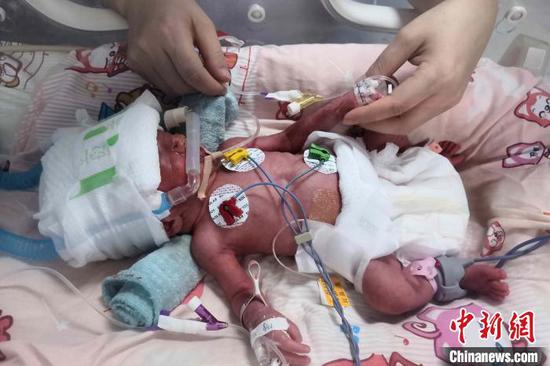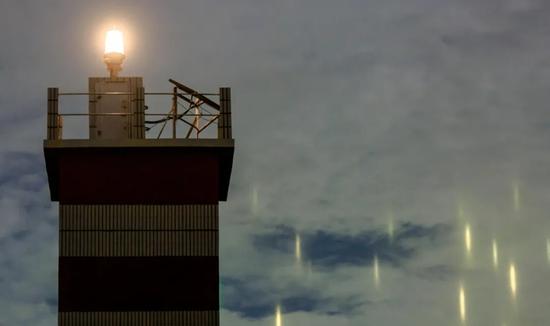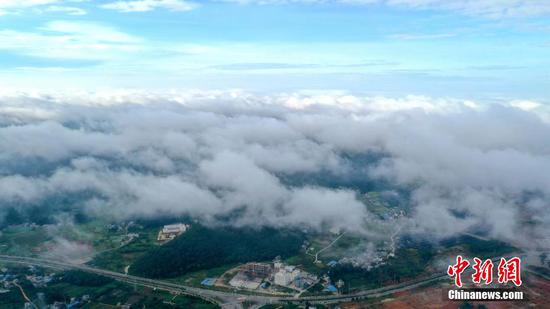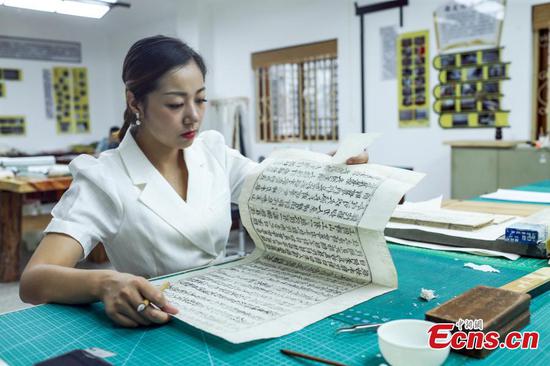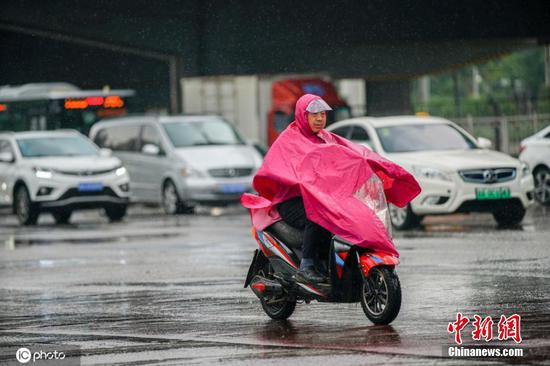15.Mike Pompeo: China sends propagandists into the press conferences, schools, research institutions in the U.S.
False.
Fact check: These remarks have fully exposed the ideological prejudice of the U.S. side. Media organizations should not be judged by the political systems and ideologies of their countries, but the objectivity, authenticity, fairness and impartiality of their news reports. Each country has its own national conditions and ways of media management and operation. The United States should not judge other countries' media by its own standards and based on its own ideology. Chinese media organizations in the United States have always followed local laws and observed professional ethics. They have carried out news reporting normally and have never interfered in the internal affairs of the United States. Over the years, they have played an important and positive role in enhancing the objective understanding and friendliness of the Chinese people towards the United States.
-- In recent years, the U.S. government has imposed unwarranted restrictions on the normal news reporting of Chinese media outlets and their staff in the country. It has continuously escalated discrimination and political suppression against Chinese media and restricted their freedom. In December 2018, CGTN America was registered as a "foreign agent" under orders from the U.S. Department of Justice. On February 18, 2020, the U.S. State Department designated five Chinese media outlets, including Xinhua News Agency, as "foreign missions" and demanded personnel, property and other information from them. On March 2, the U.S. State Department announced that from March 13, the five Chinese media outlets designated as "foreign missions" have to slash the number of Chinese nationals permitted to work in America by 60, a 40 percent cut in staff members, which means de facto expulsion of the Chinese journalists stationed in the country.
-- The United States has for a long time imposed discriminatory visa policies on Chinese journalists. U.S.-based Chinese journalists are only granted single-entry visas, which means they have to reapply for visa after they leave for China or for a third country, and nine Chinese journalists have not been able to return to the United States after leaving the country. In contrast, the United States gives multiple-entry visas to journalists from other countries and regions. When applying for U.S. visa, Chinese journalists are often requested to provide substantial amount of additional documents. Meanwhile, it has become a common practice for the U.S. side to prolong and indefinitely delay the approval process and even deny the application in the name of administrative review. Statistics show that from 2018, more than 20 Chinese journalists have had their visa application indefinitely delayed and even denied. Some Chinese journalists applied for U.S. visa in mid-December 2019, but so far have not received any feedback from the U.S. side and their passports have not been returned either. In May 2020, the United States limited the duration of stay for U.S.-based Chinese journalists, including those based in the United Nations, to 90 days, which means they have to apply for a visa extension every 90 days. If the extension application is not approved, the journalists will be forced to leave America. This new move has seriously disrupted the normal reporting work of the Chinese media.
-- At present, there are about 500 foreign journalists based in China. China has provided active assistance to facilitate their work and life. Normally, the applications of foreign journalists for the extension of press cards get approved within 10 workdays. For a long time, U.S. journalists in China have been able to travel to and from China many times with their valid certificates without applying for new visas. In 2019 alone, U.S. resident journalists in China traveled to and from the country more than 700 times. China welcomes media outlets and journalists from all countries to report in China in accordance with laws and regulations, and will continue to facilitate and assist their work.
-- As of July 2020, a total of 28 U.S. media outlets have sent resident journalists to the Chinese mainland, with 34 offices in Beijing, Shanghai, Guangzhou and Shenzhen. They have hired 29 U.S. journalists, 34 non-U.S. journalists and 135 employees. In addition, there are more than 20 U.S. media outlets operating in Hong Kong, with more than 400 staff. These U.S. journalists are free to attend press conferences held by the Ministry of Foreign Affairs and ask questions without restriction. In recent years, some U.S. media outlets have concocted a lot of "fake news" with distorted facts, and pointed fingers at Xinjiang and Hong Kong affairs. They are sparing no effort to smear and attack China and even attack China's political system. China opposes ideological prejudice against it, opposes the fabrication of fake news under the pretext of so-called freedom of the press, and opposes acts that violate the professional ethics of journalism.
16.Mike Pompeo: Chinese companies do not answer to independent boards, and many of them are state-owned and have no need to pursue profits. A good example is Huawei.
False.
Fact check: The fourth national economic census of China's National Bureau of Statistics (NBS) indicated that by the end of 2018, there were 15.61 million private companies in the country, up 178.6 percent from the end of 2013, and 84.1 percent of total enterprises were private ones, up 68.3 percent. The number of state-controlled enterprises were about 242,000, accounting for only 1.3 percent of total enterprises.
-- Creating wealth and profits are the natural pursuit and the most important functions of businesses. NBS statistics revealed the following profits made by China's major industrial enterprises (with an annual business turnover of at least 20 million yuan each) in 2019: 1.64 trillion yuan by state-controlled enterprises, 4.53 trillion yuan by joint-equity enterprises, 1.56 trillion yuan by foreign as well as Hong Kong-, Macao- and Taiwan-invested enterprises, and 1.82 trillion yuan by private enterprises.
-- In China's economic system, the private sector contributes to over 50 percent of tax revenue, over 60 percent of GDP, over 70 percent of technological innovation, and over 80 percent of urban employment, and accounts for over 90 percent of the number of enterprises.
-- Huawei is a leading private enterprise, and 100 percent employee-owned. The Chinese government has no shares in Huawei, which adopts an employee shareholding scheme involving 104,572 people through its trade union. Only Huawei employees are eligible to participate, and no government departments or organizations have any shares in Huawei.
17.Mike Pompeo: Huawei is not an innocent telecommunications company but a national security threat to the U.S.
False.
Fact check: Over the past three decades, Huawei has grown from a small company to one of the world's largest telecommunications equipment suppliers, providing quality services to over 3 billion people in more than 170 countries and regions. The company has brought enormous business opportunities to the global telecommunications industry and won a good international reputation. Each year, Huawei makes nearly 80 billion U.S. dollars of purchases globally from 13,000 suppliers in more than 140 countries. Purchases from the U.S. alone was nearly 19 billion dollars.
-- Huawei strictly abides by local laws wherever it operates. The company has long been expressing its readiness to sign no-backdoor and no-eavesdropping agreements with any country, set up cybersecurity testing centers and open itself to testing. This is enough to prove Huawei's innocence and transparency. So far, not a single country, a single company or a single individual has been able to produce solid and conclusive evidence to prove that Huawei poses a security threat to them. Huawei funded a cybersecurity testing center in the United Kingdom and opens itself to testing by UK experts. No other companies in any other country could do this, and no U.S. companies could act in such an open and honest way.
-- Huawei owns a total of 87,805 patents worldwide, of which more than 90 percent are invention patents, including 11,152 core ones granted by the U.S. authorities. According to the latest statistics from German market intelligence company IPlytics, Huawei has declared the largest number of 5G essential patents, accounting for 15.05 percent of the total number of declarations. The Patent Index 2019 of the European Patent Office suggested that Huawei was its top applicant that year, with its declared 5G essential patents outnumbering all U.S. companies.
-- The U.S. government has, with no factual basis at all, abused state power to willfully oppress and sanction Huawei under the pretext of national security. This is nothing short of economic bullying. For the United States, the so-called national security is nothing but a code name of hegemony.
-- In an analysis titled Huawei and the Mantra of Security published on July 20, 2020, Xulio Rios, director of the Spanish Observatory of Chinese Politics in Spain, said the repeated use of national security to discredit Huawei looks like a good story. He mentioned that the truth behind the U.S. pressure on its allies to block Huawei is that "Huawei's technology is highly competitive and places China ahead in the marketplace." They are trying to curb China's development by classifying Huawei as a "security" threat.
-- Jeffrey Sachs, the economics professor at Columbia University, agrees that targeting Huawei is never simply a security concern. "The U.S. concocted in my opinion, the view that Huawei is a global threat," he said, noting that the U.S. has leaned very hard on its allies...to try to break the relations with Huawei. "The United States lost its step on 5G, which is a critical part of the new digital economy."
-- According to U.S. media reports, the U.S. Rural Wireless Association (RWA) estimates that 25 percent of its members had Huawei or ZTE equipment in their networks. Replacing the equipment would cost 800 million to 1 billion U.S. dollars, which means certain U.S. rural areas may lose basic communications facilities. Banning the purchase of Huawei and ZTE equipment or services by rural operators, as advocated by some in the U.S., could end up harming the interests of American businesses and consumers.
18.Mike Pompeo: Countries should become Clean Countries so that their citizens' private information doesn't end up in the hand of the CCP.
False.
Fact check: The U.S. administration has generalized the concept of national security, resorted to the presumption of guilt and state power to hold down Chinese enterprises, and intervened in the economy with political means. All this has run counter to the free market, fair competition and entrepreneurship that the U.S. has been advocating globally for many years, seriously disrupted the order of the market economy, and violated WTO rules. These acts have undermined the open, transparent, inclusive and non-discriminatory multilateral trading system, affected the development prospects of the global 5G and digital industries, and damaged the common interests of all countries in the world.
-- The Chinese government has never asked, and will not ask its enterprises or individuals to violate local laws, and to collect or provide data, information and intelligence of foreign countries through the installation of "backdoor" or other ways.
-- The Chinese government attaches great importance to the protection of personal privacy of citizens and has been committed to improving laws and regulations on the protection of personal privacy. Chinese laws and regulations, such as its Civil Code, the Cybersecurity Law and the decision of the NPC Standing Committee on strengthening online information protection, have clear stipulations on the collection, use and protection of personal information.
-- After the 9/11 attacks, the U.S. adopted the USA Patriot Act that requires Internet companies to provide users' information on a regular basis. The "Prism Gate" incident has exposed that under the monitoring of U.S. intelligence agencies, U.S. citizens have no personal privacy in their phone calls, communications, documents, voice mail and other data. The phone calls of leaders of countries, who used to be very close allies of the United States, have also been eavesdropped by the U.S. for a long time. Facts have shown that it is the United States that has carried out the largest network surveillance and espionage operations in the world, and the U.S. is the largest "hacker empire" in the world. For this, the United Nations adopted the resolution "Privacy in the Digital Age" initiated by European countries.
-- In May 2019, the Der Tagesspiegel of Germany reported that after years of scrutiny by the British government, the German Federal Office for Information Security, the European Commission and other agencies, no obvious "backdoor" has been found on Huawei equipment. However, security flaws are often found in the equipment provided by the U.S. company Cisco. Since 2013, Cisco has been involved in at least 10 cases, which are more in line with the description of the so-called "backdoor".
-- There are security flaws in Cisco's devices, and many "backdoor" incidents have been reported. Cisco deliberately sold video surveillance technology containing serious security vulnerabilities to government agencies, and was sued by video surveillance experts of its distributor NetDesign. In 2019, Cisco eventually paid 8.6 million U.S. dollars to settle claims for its act of "leaving backdoor" .
-- As early as in 2014, Apple admitted that it could extract personal data such as SMS, address book and photos of its mobile phone users through the backdoor of Apple's mobile phone system. Its CEO Tim Cook said publicly that "China has never asked us to unlock the iPhone, but the U.S. has asked for it." Facebook was also revealed to have a backdoor to its users' accounts.
19.Mike Pompeo: China has set up concentration camps in Xinjiang.
False.
Fact check: There are no so-called "concentration camps" in Xinjiang, and its vocational education and training centers were established in accordance with the law. The centers are similar in nature to community correction programs of the United States, the Desistance and Disengagement Programme (DDP) of the UK, and the deradicalization center of France, all beneficial attempts and positive explorations for preventive counter-terrorism and de-extremism. They are consistent with the principles and spirit of a series of counter-terrorism resolutions, including the UN Global Counter-Terrorism Strategy.
-- It is a practice with ulterior motives for some U.S. politicians and media to call Xinjiang vocational education and training centers "concentration camps". The Network of Chinese Human Rights Defenders, a non-governmental organization supported by the U.S. government, has come to the absurd conclusion that 10 percent of Xinjiang's 20 million population are detained in the so-called "concentration camps", simply based on its interviews with eight people and rough estimates.
A survey by Grayzone, a U.S. news website, revealed that Adrian Zenz, a pseudo scholar, had fabricated the rumor that the total of detainees in Xinjiang exceeded 1 million based on a report by Istiqlal TV, a Turkey-based exile media organization. According to Grayzone, rather than being an impartial news organization, Istiqlal TV has advocated separatism and received all kinds of extremists. Even Adrian Zenz himself admitted that he was uncertain with his estimate.
-- For some years, Xinjiang has been a victim of terrorism and extremism. According to preliminary statistics, between 1990 and the end of 2016, ethnic separatists, religious extremists and violent terrorists have plotted and carried out several thousand acts of terrorism, resulting in the death of a large number of innocent civilians, the killing of several hundred police officers, and huge property losses.
Thanks to the law-based anti-terrorism, deradicalization and vocational education and training in Xinjiang, there have been no violent terrorist cases in the region for more than three years, and people of all ethnic groups have acquired a notably stronger sense of fulfillment, happiness and security.
-- Vocational education and training centers in Xinjiang have focused on the main problems facing the trainees, such as low proficiency in spoken and written Mandarin, lack of understanding in the law and occupational skills, and influence by religious extremism to various degrees. A curriculum that includes standard spoken and written Mandarin, legal courses, vocational skills and deradicalization has been developed, aiming at eliminating the root causes of terrorism and religious extremism.
The centers strictly implement the basic principles of respecting and protecting human rights enshrined in China's Constitution and laws, fully respect and guarantee the trainees' personal freedom and freedom of religious belief, the right to use their spoken and written languages, and the customs of different ethnic groups. There are access to various living facilities, and legal and mental counseling rooms. All trainees are covered by public pension and medical insurance schemes, and are entitled to free health examination.
So far, all the trainees involved in the courses of standard spoken and written Mandarin, legal courses, vocational skills and deradicalization have graduated, and been employed with the help of the government. They are living a much-improved and happier life.
-- In October 2019, more than 60 countries, including over 30 Islamic countries, addressed the UN General Assembly in support of China's policy in Xinjiang. None of the few countries that criticized China's policies was an Islamic country.
Since the end of December 2018, Xinjiang has been visited by more than 70 groups of UN officials, foreign diplomats in China, representatives of relevant countries to the UN Office at Geneva, media reporters and religious groups. The number of these visitors, who come from over 90 countries, exceeded 1,000. They noted that Xinjiang's anti-terrorism and deradicalization efforts were consistent with the purposes and principles of the UN in fighting terrorism and safeguarding basic human rights, and should be fully recognized and learned from.
-- Many foreign diplomats, experts, scholars and media reporters, after a personal visit to the vocational education and training centers, said the Chinese government had introduced a number of preferential policies and measures to improve people's livelihoods in Xinjiang in line with local conditions, benefiting the people of all ethnic groups with prosperity and vitality. Before visiting Xinjiang, they had thought that the centers were "concentration camps". However, after seeing with their own eyes how the trainees studied and lived at the centers, receiving skills training and attending various activities based on their interests, they realized that the so-called "concentration camps" were all lies maliciously spread by Western politicians and media.
20.Mike Pompeo: China walked away from its promise to the world on Hong Kong.
False.
Fact check: The central government has been unswervingly implementing the policy of "one country, two systems". Since Hong Kong's return to the motherland, this principle, along with "the people of Hong Kong administering Hong Kong" and a high degree of autonomy, has been effectively implemented and made widely recognized achievements. "One country, two systems" has been proven to be the best institutional arrangement to maintain Hong Kong's long-term prosperity and stability. The central government will continue to uphold the integrity of the "one country, two systems" policy, and ensure its faithful implementation.
-- The legal basis for the Chinese government to govern Hong Kong is China's Constitution and the Basic Law of the HKSAR. The Sino-British Joint Declaration is not relevant in this regard. As China resumed the exercise of sovereignty over Hong Kong in 1997, all provisions concerning the UK under the Joint Declaration had been fulfilled. The basic policies on Hong Kong stated by China in the Joint Declaration are its policy declaration, which have since been fully embodied in the Basic Law enacted by the NPC. China's relevant policies have not changed, and will continue to be adhered to.
-- At the 44th session of the United Nations Human Rights Council held between June 30 and July 17, when a small number of Western countries smeared China on Hong Kong-related issues, over 70 countries supported China's legitimate position and condemned the act to use Hong Kong to interfere in China's internal affairs. This reflected the common voice and just position of the international community. It is not hard to tell who wins over support of the majority.
-- Hong Kong has been one of the world's freest, open, prosperous and dynamic regions. From 1997 to 2019, its GDP increased from 1.37 trillion to 2.87 trillion Hong Kong dollars. Over the years, Hong Kong has maintained its status as an important global financial center. By the end of 2019, the total value of Hong Kong's stock market approached five trillion U.S. dollars, closely trailing that of New York, Shanghai and Tokyo.
-- According to the annual competitiveness rankings compiled by the Swiss-based International Institute for Management Development, Hong Kong has moved up the chart since its return to the motherland, and has for four times claimed the first or second place between 2015 and 2020.
-- By 2019, Hong Kong has been rated as the world's freest economy for 25 consecutive years by the U.S.-based Heritage Foundation.









